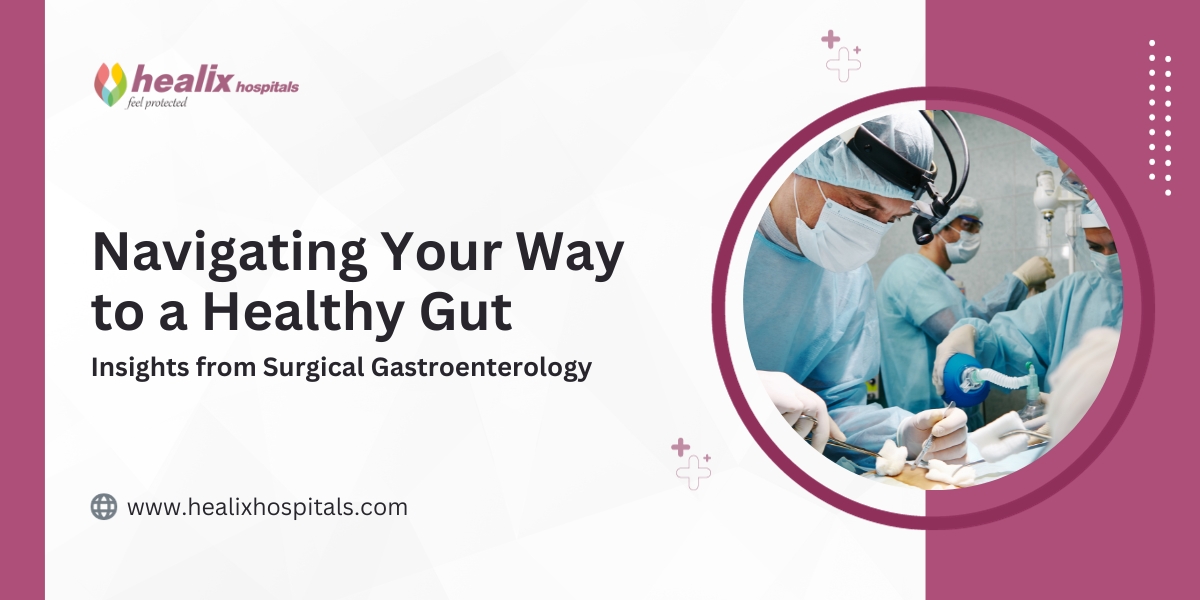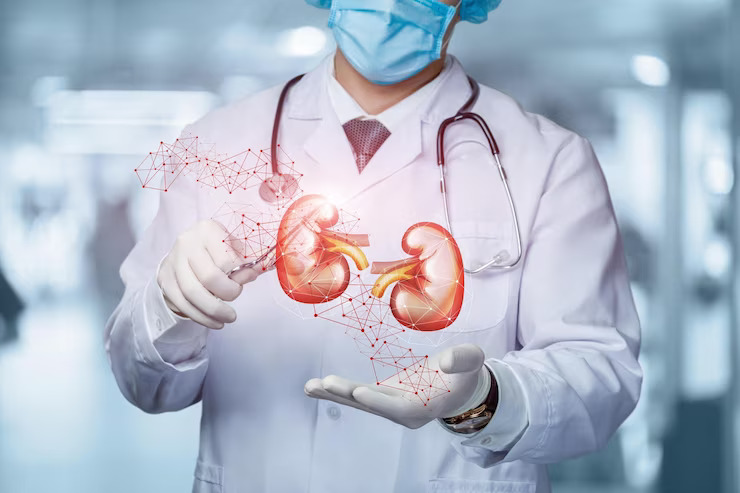

In healthcare, few things are as crucial to our well-being as our digestive system. It's the gateway to good health, and the field of Surgical Gastroenterology holds the key to maintaining it. With this article, we delve deep into gastrointestinal surgery, exploring insights, innovations, and advancements that promise a healthier gut.
Let's navigate through the intricate path of Surgical Gastroenterology and discover the secrets it holds.
Surgical Gastroenterology Insights!
Surgical Gastroenterology is a specialized branch of medicine that focuses on surgical treatments for digestive system disorders. These insights offer a glimpse into intricate procedures and cutting-edge research.
Unveiling Gastrointestinal Surgery Findings
In the realm of Surgical Gastroenterology, researchers continuously uncover groundbreaking findings that redefine the way we approach gastrointestinal ailments. From minimally invasive techniques to advanced procedures, every discovery shapes the future of gastroenterology.
Key Terminology
Before we dive deeper, let's familiarize ourselves with some key terms you'll encounter throughout this article:
Gastrointestinal Surgery Findings
These refer to the discoveries and insights obtained through surgical procedures aimed at resolving issues within the gastrointestinal (GI) tract. Surgeons perform these surgeries to diagnose, treat, or manage a wide range of GI conditions, and the findings often include:
- Information about the state of the GI tract.
- The success of the surgical intervention.
- Potential insights into the patient's overall digestive health.
Digestive System Surgery Data
This term pertains to information gathered from surgical interventions on the digestive system. It encompasses a wide range of data, including pre-operative assessments, surgical techniques employed, intraoperative observations, and postoperative outcomes. This data is crucial for understanding the intricacies of digestive system surgeries and improving patient care.
Minimally Invasive Techniques Results
Minimally invasive techniques are designed to reduce the impact of surgery on the patient's body. The results in this context focus on the outcomes of procedures that aim to minimize invasiveness. This includes details on reduced postoperative pain, shorter hospital stays, and moreover, quicker recovery times compared to traditional open surgeries.
Postoperative Complications Research
After gastrointestinal surgery, there can be potential issues or complications that arise during the recovery phase. Research in this area is dedicated to studying and understanding these complications, including infections, wound healing problems, or adverse reactions to anesthesia. The aim is to find effective ways to predict, prevent, and manage these complications, ensuring the best possible postoperative experience for patients.
Gastrointestinal Disease Management
This term relates to strategies employed by healthcare providers for treating and managing a variety of digestive system disorders. It encompasses a holistic approach to working conditions like irritable bowel syndrome, Crohn's disease, or diverticulitis, including medication, lifestyle changes, dietary modifications, and, when necessary, surgical interventions.
Surgical Outcomes in Gastroenterology
These outcomes represent the results of surgical interventions on the GI tract. They encompass a wide range of surgical procedures, from appendectomies to complex GI tumor resections. The outcomes may include data on the success of the surgery, patient recovery, and long-term health prospects.
Abdominal Surgery Innovations
Innovations in abdominal surgery refer to advances in surgical techniques for addressing issues in the abdominal region. These innovations can include the development of new procedures, improved instrumentation, and novel approaches to make abdominal surgeries more efficient, less invasive, and safer for patients.
The Journey Begins Insights and Innovations!
Minimizing Invasiveness for Maximum Results
One of the most significant advancements in Surgical Gastroenterology is the shift toward minimally invasive techniques. Surgeons can now perform complex procedures with small incisions, reducing postoperative discomfort and recovery time. This means less pain for the patient and a quicker return to everyday life.
The Power of Endoscopy
Endoscopy has become a cornerstone in diagnosing and treating gastrointestinal issues. This non-surgical technique allows physicians to examine the GI tract closely, identify problems, and even perform therapeutic procedures with minimal discomfort for the patient.

Managing the Challenges: Complications and Disease Management
Postoperative Complications
While Surgical Gastroenterology has come a long way, it has its challenges. Postoperative complications can occur, and it's essential to address them promptly. Thanks to ongoing research, healthcare providers are better equipped to predict, prevent, and manage these complications, ensuring the patient's well-being.
Gastrointestinal Disease Management
For those dealing with chronic GI conditions, disease management is crucial. Surgical Gastroenterology offers a spectrum of solutions, from medication to surgery, tailored to each patient's needs. The key is to work closely with your healthcare staff to create a personalized plan for optimal results.
A Healthier You: Surgical Outcomes and Innovations
Colorectal Surgery Advancements
Colorectal surgery, often used to treat conditions like colon cancer or inflammatory bowel disease, has seen remarkable advancements. These procedures are now less invasive, resulting in shorter hospital stays and faster recoveries.
Gastrointestinal Tumor Surgery
Surgical interventions for GI tumors have made significant progress. Surgeons can now remove tumors precisely, minimizing damage to healthy tissues and improving overall patient outcomes.
Navigating the Future: Your Role in Digestive Health
As we conclude our journey through Surgical Gastroenterology, it's essential to understand that your role in maintaining a healthy gut is equally vital. By staying informed about the latest surgical innovations and insights, you can indeed make informed decisions about your healthcare.
Bariatric Surgery Insights
If you're considering weight-loss surgery, bariatric surgery insights are essential. These insights can help you understand the potential benefits, risks, and outcomes associated with different bariatric procedures.
Laparoscopic Colectomy Research
For individuals facing colon issues, laparoscopic colectomy research provides valuable information about the benefits of minimally invasive surgery. It's an option worth exploring if you're a candidate for this procedure.
Pancreatic Surgery Findings
Surgical interventions for pancreatic issues have seen positive findings in recent years. If you or a loved one is dealing with pancreatic problems, these findings can offer hope and guidance.
Conclusion
In Surgical Gastroenterology, insights, innovations, and advancements are the driving force behind better patient outcomes. The professionals in this field work tirelessly to ensure that individuals suffering from digestive system disorders can find hope and healing through surgical interventions.
Key Takeaways
- Surgical Gastroenterology is a specialized branch of medicine focused on surgical treatments for digestive system disorders.
- Minimally invasive techniques and laparoscopic procedures are transforming the landscape of abdominal surgery, leading to quicker recoveries and fewer complications.
- Managing gastrointestinal diseases, including Crohn's disease and ulcerative colitis, is a crucial aspect of surgical gastroenterology.
- Advancements in abdominal surgery and colorectal surgery are improving the outcomes for patients.
- Surgical interventions for esophageal disorders, bariatric surgery, and pancreatic diseases offer hope and healing.
- Gastrointestinal endoscopy and liver resection play essential roles in the diagnosis and treatment of digestive system disorders.
Also Read: Gall Stones Diet: Foods To Eat And Avoid - Healix Hospitals